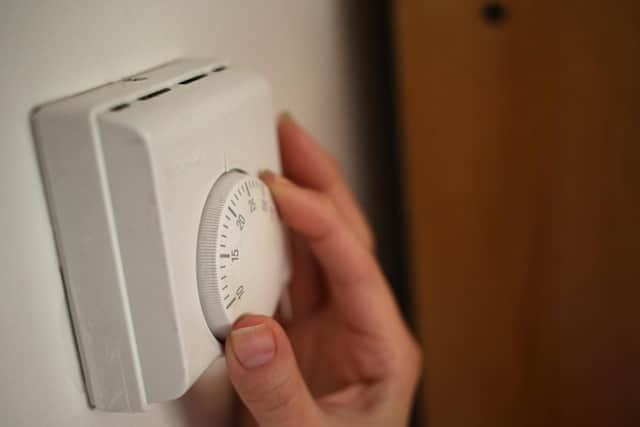Over 150 more homes in Crawley equipped to tackle climate change and fuel poverty
and live on Freeview channel 276
But campaigners say more needs to be done to ensure the country meets its net zero target and people can afford to heat their homes.
The Energy Company Obligation (ECO) scheme aims to reduce carbon emissions and help people at risk of fuel poverty by making energy firms install heat-saving measures such as insulation and more efficient boilers.
Advertisement
Hide AdAdvertisement
Hide AdDepartment for Business, Energy and Industrial Strategy data shows 179 homes in Crawley were fitted with ECO measures in the year to June – 148 more than the previous year.


It means 2,051 households in the area have benefitted from the scheme since it launched in 2013.
Across Great Britain, 2.3 million homes have been fitted with ECO measures over the last eight years.
The most common improvement nationally is cavity wall insulation (30%), followed by the installation of more efficient boilers (23 per cent) and loft insulation (20 per cent).
Advertisement
Hide AdAdvertisement
Hide AdThe ECO scheme, which changed over the years to target different energy efficiency problems, is estimated to have delivered £17 billion in lifetime heating bill savings.
But charity National Energy Action says too many vulnerable people across the UK are still at risk of 'needless death' due to a cold home.
Peter Smith, director of policy and advocacy at the NEA, said the average annual saving for improving a home's energy efficiency can be "life-changing", with savings between £300 and £1,000 a year.
He said: "For too many households, a low level of energy efficiency is still making a big impact on whether they can afford to live in a warm, safe home.
Advertisement
Hide AdAdvertisement
Hide Ad"By focusing early efforts on the ‘worst first’ these significant savings also accrue over a longer-time period, at the same time as taking early action to significantly reduce carbon emissions, generate jobs, and economic growth."
The Energy Saving Trust said it is looking forward to seeing the Government's upcoming strategy aimed at decarbonising homes.
Stew Horne, head of policy, said: “It is great to see that more home energy efficiency measures are being installed via the Energy Company Obligation scheme.
"However, the climate emergency is upon us and to meet the UK’s net zero carbon targets by 2050, we need to see an acceleration in the pace and scale of retrofitting our homes to make them more efficient."
Advertisement
Hide AdAdvertisement
Hide AdA BEIS spokesman said 'significant' progress was already being made.
They added: "We want to go further and faster, ensuring nobody goes cold in their own home.
"That is why we are investing £1.3 billion into making homes more energy efficient, cheaper to heat and helping low-income families significantly reduce their energy bills."